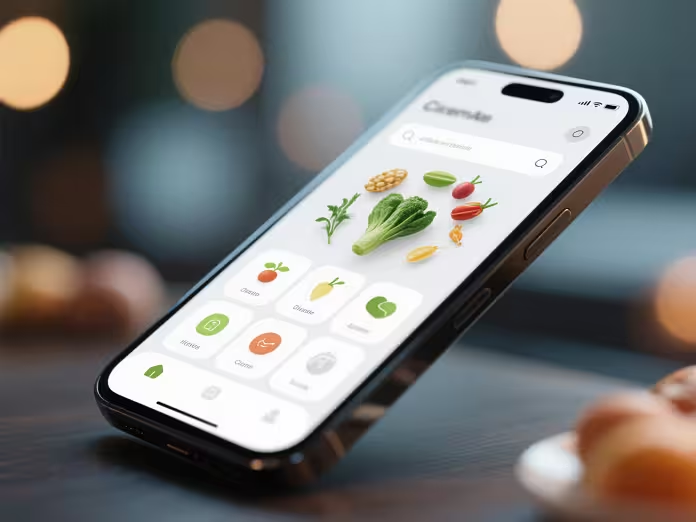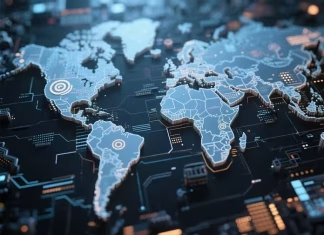
The way we approach nutrition has fundamentally shifted. Gone are the days of generic meal plans and one-size-fits-all dietary advice. Today’s health-conscious consumers are turning to digital nutrition apps that promise personalized guidance, real-time feedback, and AI-powered coaching that adapts to their unique lifestyle needs.
This digital revolution isn’t just changing how we track calories—it’s redefining the entire concept of dieting by making nutrition personal, accessible, and surprisingly intelligent.
Digital Nutrition Apps Transform How We Eat from Now On
The Digital Transformation of Nutrition
The global digital health market is experiencing explosive growth, with nutrition apps leading the charge. What started as simple calorie counters has evolved into sophisticated platforms that analyze your eating patterns, predict nutritional deficiencies, and even suggest meal modifications based on your mood, sleep quality, and activity levels.
Digital nutrition apps have become the new personal dietitians, available 24/7 in your pocket. These platforms leverage advanced algorithms to process millions of food combinations, nutritional databases, and user behavior patterns to deliver insights that would have required expensive consultations with nutrition experts just a few years ago.
The appeal is undeniable. Users can photograph their meals and receive instant nutritional breakdowns, complete with macro and micronutrient analysis. Some apps even identify specific ingredients and suggest healthier alternatives or warn about potential allergens.
AI Coaches: Your Personal Nutrition Mentor
Artificial intelligence has elevated digital nutrition from passive tracking to active coaching. Modern AI nutrition coaches don’t just record what you eat—they learn from your preferences, understand your goals, and adapt their recommendations accordingly.
These virtual coaches analyze patterns in your eating habits that you might never notice. They can identify that you consistently crave sugar after stressful workdays, or that your protein intake drops significantly on weekends. Armed with this knowledge, they provide targeted interventions and gentle nudges toward healthier choices.
The most advanced systems integrate with wearable devices, sleep trackers, and even calendar applications to create a holistic view of your lifestyle. When your smartwatch indicates elevated stress levels, your nutrition app might suggest magnesium-rich foods or recommend avoiding caffeine after 2 PM to improve sleep quality.
The Psychology of Lifestyle Dieting
Traditional diets fail because they ignore individual psychology and lifestyle realities. The new generation of digital nutrition apps succeeds by embracing these factors as core components of nutritional success.
Lifestyle dieting recognizes that sustainable nutrition isn’t about restriction—it’s about intelligent adaptation. Instead of forcing users to abandon their favorite foods, smart apps suggest modifications, timing adjustments, or complementary nutrients that minimize negative impacts while maximizing satisfaction.
For instance, if you love pizza on Friday nights, an AI coach won’t tell you to stop. Instead, it might suggest adding a fiber-rich salad beforehand to slow glucose absorption, recommend a specific brand with better ingredients, or adjust your Saturday morning routine to accommodate the extra calories.
Personalization at Scale
The true power of digital nutrition lies in its ability to deliver personalized advice at unprecedented scale. These platforms can consider thousands of variables simultaneously—your genetic predispositions, cultural food preferences, budget constraints, cooking skills, time availability, and health conditions—to create truly individualized nutrition strategies.
Some cutting-edge apps are beginning to incorporate genetic testing results, allowing for nutrition recommendations based on how your specific DNA processes different nutrients. Others use continuous glucose monitoring data to identify exactly which foods cause problematic blood sugar spikes for your unique metabolism.
This level of personalization was previously available only to elite athletes or wealthy individuals who could afford comprehensive testing and personal nutritionist consultations. Now, it’s becoming accessible to anyone with a smartphone.
Smart Diet Apps: AI Coaches Replace Traditional Diet
The Social Element
Modern digital nutrition apps understand that eating is fundamentally social. Many platforms now include community features, family sharing options, and social challenges that make healthy eating a group activity rather than a solitary struggle.
Users can share meal photos, exchange recipes, participate in group challenges, or even compete with friends in achieving nutritional goals. This social dimension addresses one of the biggest obstacles to dietary change: the feeling of isolation and deprivation that comes with trying to eat differently from your social circle.
Real-Time Adaptation and Learning
Perhaps the most revolutionary aspect of AI-powered nutrition coaching is its ability to learn and adapt in real-time. Traditional diet plans remain static, but digital coaches continuously refine their understanding of what works for each individual user.
If the app notices you consistently skip breakfast recommendations but follow dinner suggestions, it learns to focus more heavily on evening meal planning. If certain ingredients consistently lead to digestive issues, the AI remembers and automatically avoids suggesting them in future meal plans.
This adaptive intelligence extends to understanding emotional eating patterns, seasonal preferences, and life changes. The same app that helped you maintain nutrition during a stressful work period can automatically adjust when you start a new fitness routine or move to a different climate.
The Science Behind the Interface
The most effective digital nutrition apps aren’t just pretty interfaces—they’re built on robust scientific foundations. Leading platforms collaborate with registered dietitians, food scientists, and behavioral psychologists to ensure their algorithms reflect current nutritional science and evidence-based practices.
Many apps now incorporate principles from behavioral economics, using techniques like default options, social proof, and loss aversion to encourage healthier choices without feeling manipulative. The goal is to make healthy eating feel natural and automatic rather than forced or difficult.
Looking Forward: The Future of Digital Nutrition
The evolution of digital nutrition is far from complete. Emerging technologies promise even more sophisticated personalization and convenience. Computer vision improvements will enable more accurate food recognition from photos. Voice interfaces will make logging meals as simple as talking to your phone. Integration with smart kitchen appliances will provide real-time cooking guidance and automatic meal logging.
Perhaps most exciting is the potential for predictive nutrition—apps that can anticipate your needs and proactively suggest meals, supplements, or timing adjustments based on your upcoming schedule, weather patterns, menstrual cycle, or other predictable factors.
The rise of digital nutrition apps and AI coaches represents more than technological advancement—it’s a fundamental shift toward making nutrition personal, sustainable, and integrated into daily life rather than something that exists separately from it.
As these platforms continue to evolve, they’re not just changing how we eat—they’re redefining what it means to have a healthy relationship with food in the digital age. The lifestyle diet isn’t about following someone else’s rules; it’s about discovering what works uniquely for you, with AI as your guide.
AI Nutrition Apps: Your Smart Diet Coach Revolution



































